
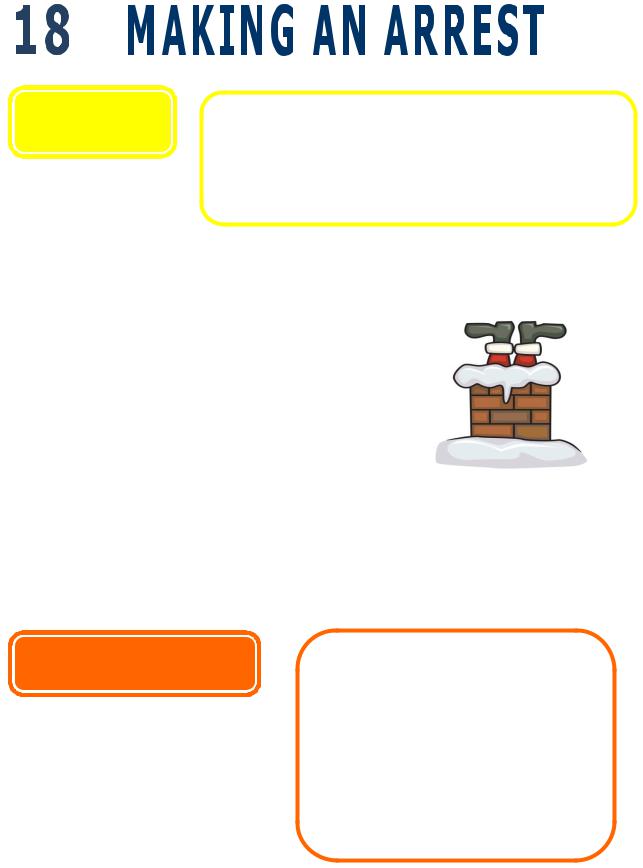
WARM-UP
Please, read the headline of the story and look only at the picture. What do you think has happened? Then, divide into two groups: first group reads the story and the rest of the group has to ask questions to find out what happened.
Police Capture Man in Chimney
A man who tried to break into a house on Friday got stuck in a chimney for fifty hours. The owner of the house returned after a weekend vacation and heard a strange noise in her chimney. She called the police, who found a neighbor stuck upside-down in the chimney. He had climbed onto the roof and was trying to enter the house through the chimney when he got stuck. The man claimed he had returned
home drunk, lost his key, and thought this was
his house. After the police got him out of the Do you think this is a true story? chimney, they arrested him.
PRONUNCIATION
Read the following words and
сheck your pronunciation:
arrest [ə'rest], warrant ['wɔr(ə)nt], witness ['wɪtnəs], probable ['prɔbəbl] cause [kɔːz], frisk [frɪsk], pat [pæt] down [daun], personal ['pɜːs(ə)n(ə)l] safety ['seɪftɪ], advise [əd'vaɪz], handcuff ['hæn(d)kʌf], resist [rɪ'zɪst], juveniles ['ʤuːvɪnaɪlz] mentally ['ment(ə)lɪ] ill [ɪl], justice ['ʤʌstɪs]
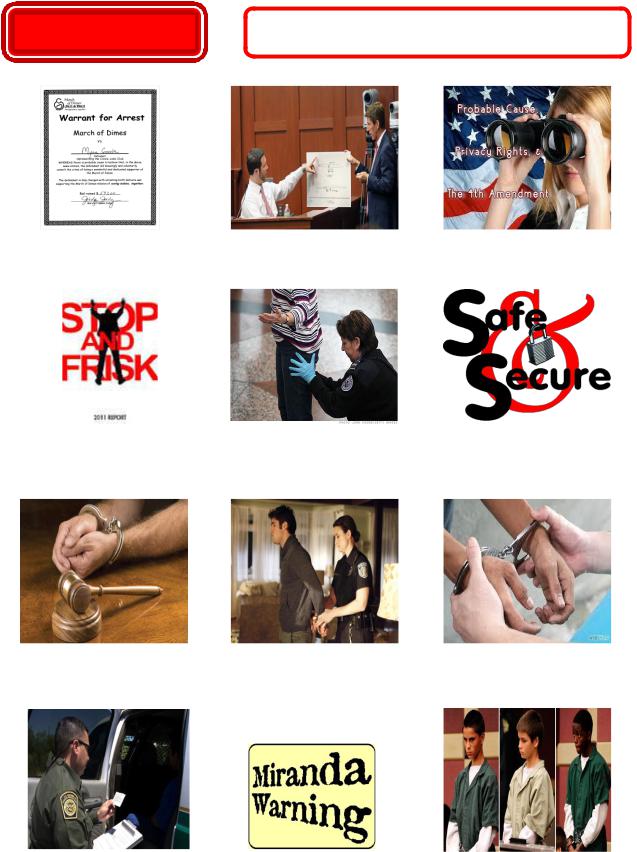
KEY WORDS:
Try to remember the words below, please:
an arrest warrant – |
to witness – засвідчити |
probable cause – |
ордер на арешт |
що-небудь |
достовірна причина |
to frisk – проводити to pat down – oбшукувати |
personal safety – |
обшук |
особиста безпека |
a cause for arrest – |
to place а suspect under arrest – |
to handcuff – |
причина для арешту |
заарештовувати підозрюваного |
одягнути кайданки |
to advise a suspect of his rights – |
juveniles – підлітки |
повідомити підозрюваному про права |
|
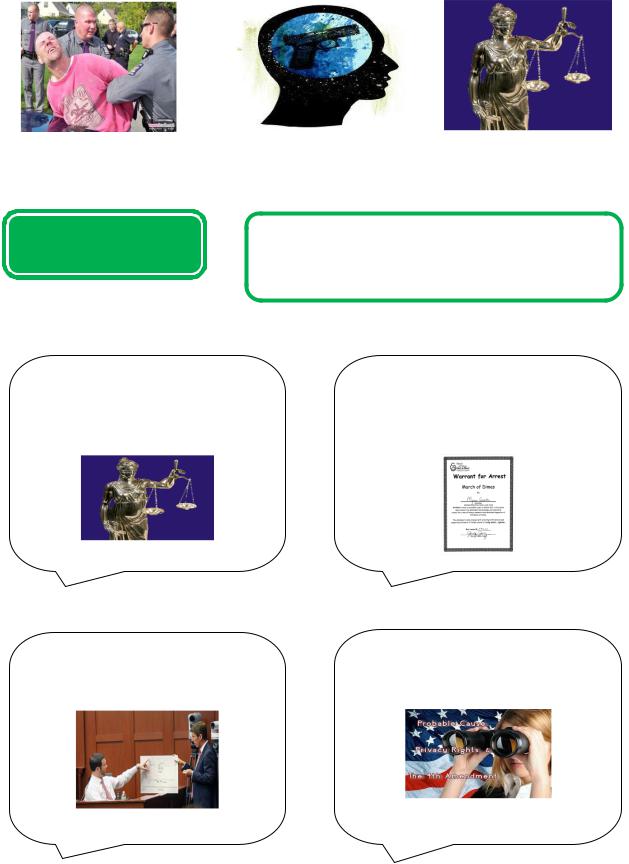
to resist – вчиняти спротив mentally ill persons – |
justice – правосуддя |
люди з хворою психікою |
|
READING
Please, use key words and complete each sentence. Read the guidelines for making arrests.
1. According to the demands of______ arrests are not simple procedures.
2. Arrests can be made under several circumstances: 1). A police officer must possess an
______
3. 2). An officer has to ______ |
4. 3). He has identified ______. |
someone committing a crime. |
|
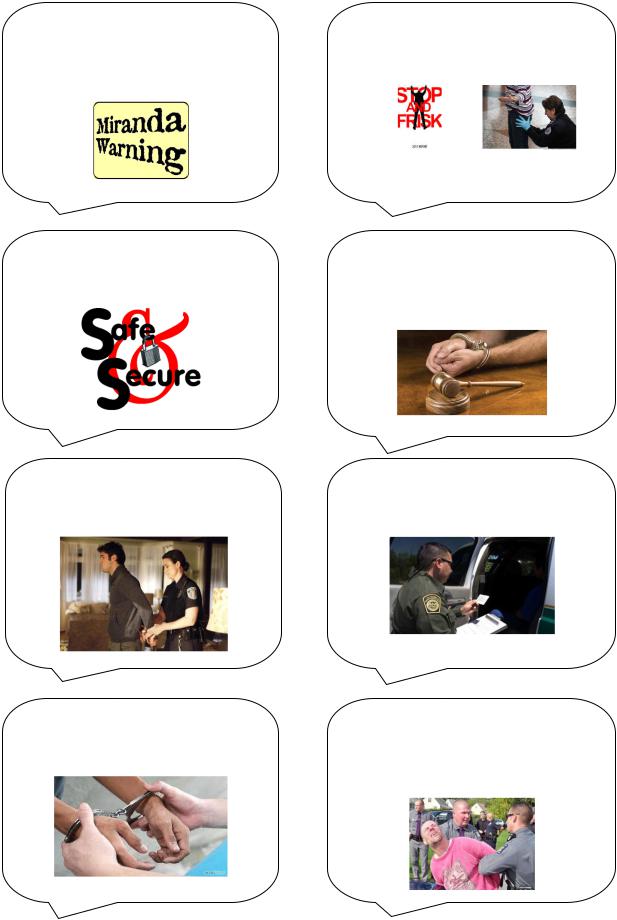
5. The suspect is not required by law to provide any information.
7. …when they believe their
_________ may be at risk.
9. To _______ is only the first stage of criminal process.
6. Police officers have the right
to ______ or _______ suspects...
8. Confiscated drugs, weapons, or stolen items during a search provide _______ for arrest.
10. In all cases, a police officer has to ___________.
11. Then, an officer should |
12. If the suspect _______ any |
_____ the suspect. |
means may be used to subdue |
|
his aggression. |
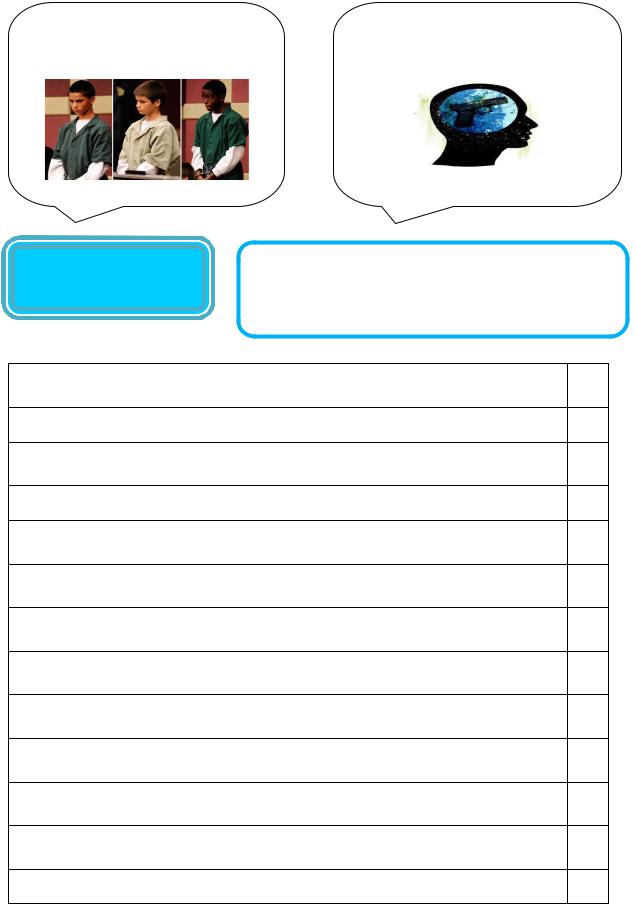
13. When _____ are arrested, |
14. Oftentimes criminals turned |
their parents must be notified |
out to be ______________. |
immediately. |
|
SPEAKING
Put the sentences in the correct order according to the previous story. Please, try to retell it.
Arrests can be made under several circumstances: 1). A police officer must possess an arrest warrant.
3). He has identified probable cause.
Police officers have the right to frisk or pat down suspects when they believe their personal safety may be at risk.
The suspect is not required by law to provide any information.
Confiscated drugs, weapons, or stolen items during a search provide cause for arrest.
In all cases, a police officer has to advise a suspect of his rights.
If the suspect resists any means may be used to subdue his aggression.
Oftentimes criminals turned out to be mentally ill persons.
According to the demands of justice arrests are not simple procedures.
To place a suspect under arrest is only the first stage of criminal process.
2). An officer has to witness someone committing a crime.
Then, an officer should handcuff a suspect.
When juveniles are arrested, their parents must be notified immediately.
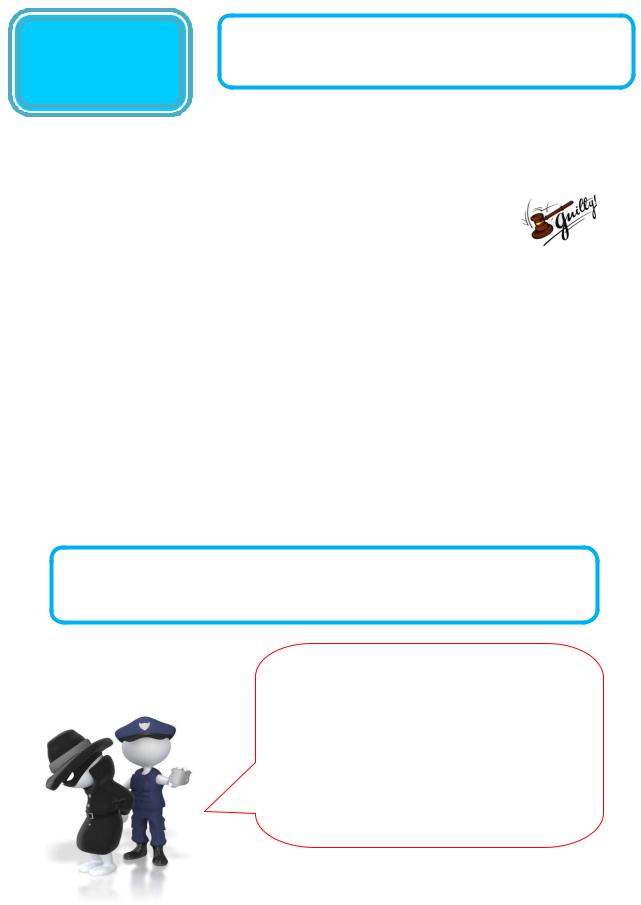
EXTRA
Please, practice the dialogue between a police officer and a suspect.
SPEAKING
Officer: Let me explain to you why you’re being arrested.
Suspect: I’m listening.
Officer: You’re under arrest for breaking into a hotel room.
Suspect: I didn’t break in. I’m staying at the hotel.
Officer: Several guests witnessed you breaking a window to get in.
Suspect: They’re lying. The window was already broken.
Officer: A guest also reported several things missing from her room.
Suspect: You can’t prove that I took anything.
Officer: We’ll see. Another officer is on his way to search you. If he finds those items, we will also charge you with a theft. So at this point, I advise you just to cooperate and put your hands behind your back. I don’t want to add resisting arrest to you charges.
Act out similar dialogues based on the given situation.
Use The Miranda rule in your conversation.
MIRANDA WARNING
1.YOU HAVE THE RIGHT TO REMAIN SILENT.
2.ANYTHING YOU SAY OR DO CAN AND WILL BE USED AGAINST YOU IN A COURT OF LAW.
3.YOU HAVE THE RIGHT TO AN ATTORNEY. IF YOU CANNOT AFFORD AN ATTORNEY, ONE WILL BE APPOINTED TO YOU.
4.DO YOU UNDERSTAND THESE RIGHTS AS THEY HAVE BEEN READ TO YOU?
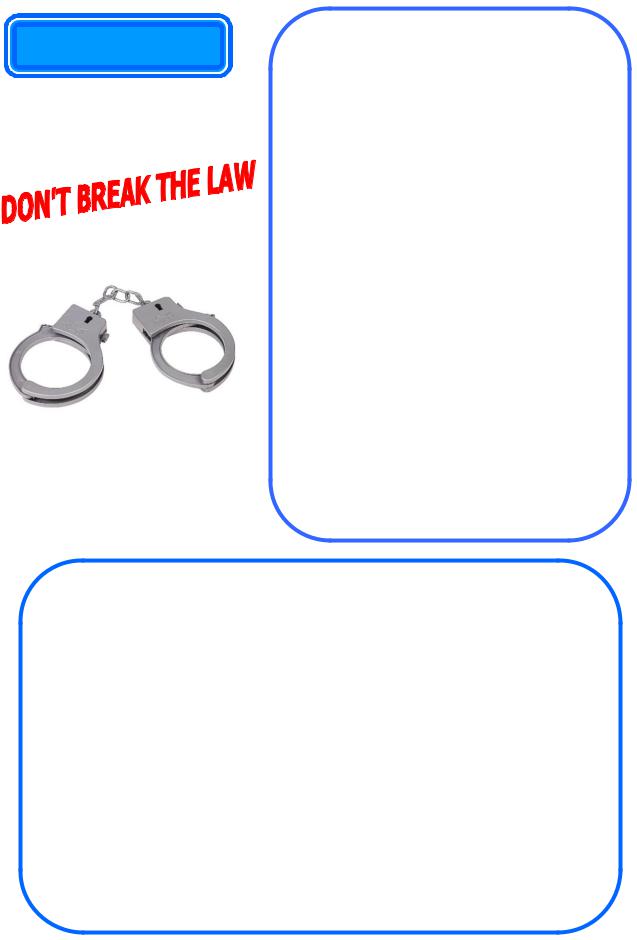
W R I T I N G
1. Please, choose the necessary word to each sentence:
frisked advised resisted cause mentally ill juvenile handcuffed
1. The officer ___________ the man for the weapons.
2.The man __________ arrest until the officer handled him more aggressively.
3.A (n) ______ person may not understand that he has committed a crime.
4.The officer _______ the woman’s wrist.
5.Police notified the ______’s parents of her arrest.
6.The officer _____ the man of his rights.
7.Seeing a suspect commit a crime is
________ for arrest.
2. Please, match the words (1-8) with definitions (A-H) which are below.
1 |
__ assess |
5__ discontinue |
2 |
__ nature |
6__ reasonable |
3 |
__ pursuit |
7 __weather conditions |
4 |
__ reckless |
8__ population density |
A fair or logical
B the ratio of people to an area
C to cancel something
D to make a determination
E without concern for safety
F the overall quality of something
G the act of chasing someone
H the factors that affect climate
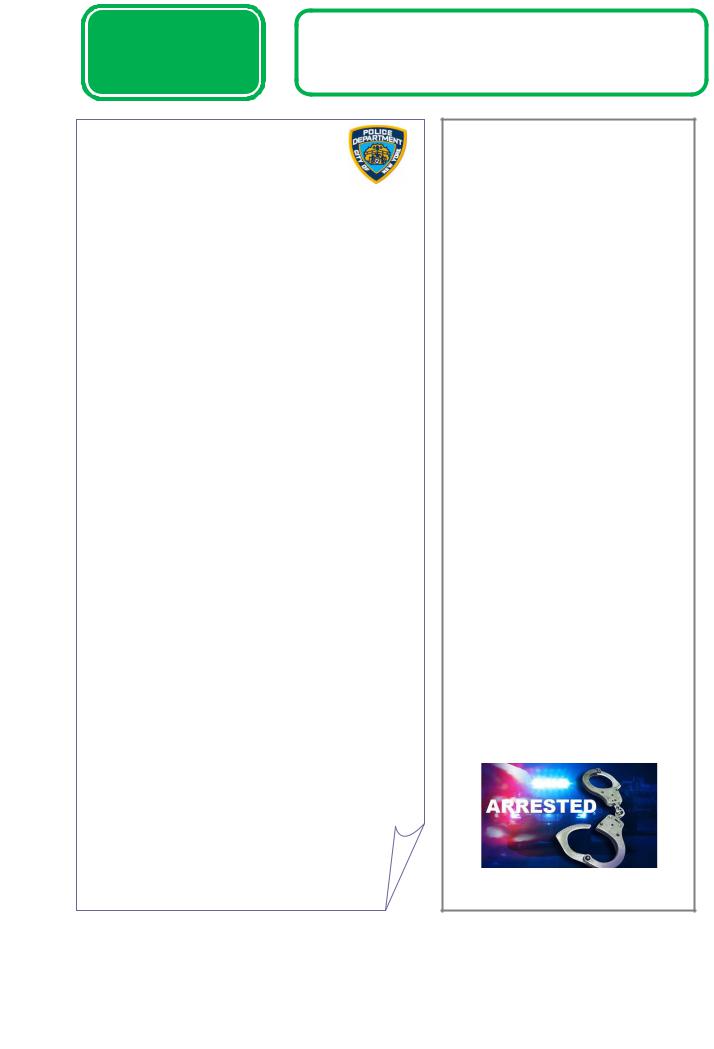
EXTRA
SPEAKING
Please, read the page from a police manual.
Then, mark the statements as true (T) or false
(F).
ARRESTS
Arrests can be made under several circumstances.
An officer may arrest someone when:
1.He has possession of an arrest warrant.
2.He witnesses someone committing a
crime.
3.He has identified probable cause.
When he stops a suspect a police officer has the right to ask for identification. The officer can ask the suspect for his name, address, license and an explanation of his actions. Note that the suspect is not required to provide any of this information.
Police officers have the right to frisk or pat down suspects when they believe their personal safety may be at risk. Officers have the right to confiscate drugs, weapons, or stolen items during a search. The aforementioned items also provide cause for arrest.
When placing a suspect under arrest, the officer should advise the suspect of his rights. A more complete search of the suspect for weapons or other dangerous objects should be conducted. Then, an officer should handcuff the suspect. If the suspect resists, any means within reason may be used to subdue the suspect.
Please note: When juveniles are arrested, their parents must be notified immediately. Oftentimes juveniles and mentally ill persons can be dealt with informally. Never arrest someone when a warning would be as
Are the statements True or False?
__ Suspects do not have to supply identification when asked by an officer;
__ Officers can use any reasonable means to arrest a resisting suspect;
__ Juvenile’s parents must be notified before an arrest;
__ The main condition of making arrests is an arrest warrant;
__ The officer doesn’t have to ask for identification of a suspect;
__ Police officers are not allowed to ask suspects to give any explanations of their actions;
__ A suspect has to be advised on his rights when being placed under arrest;
__ It’s more reasonable to arrest someone that to give a warning.
